Hawaii judge extends order blocking Trump's Muslim ban
A federal judge in the US state of Hawaii has placed a stronger hold on Donald Trump's revised travel ban, striking another legal blow against the president's repeated attempts to bar people from several Muslim-majority countries from entering the United States.
On March 15, US District Judge Derrick Watson was the first to rule against the president’s revised executive order, saying that the state of Hawaii had established that the law could not be enforced because it was unconstitutional. The ruling blocked the travel ban but it was to last only a couple of weeks.
After hearing arguments from the attorneys for the Hawaii attorney general and the Department of Justice, Watson on Wednesday extended his previous temporary restraining order.
State Attorney General Douglas Chin argued that the implied message in Trump’s revised ban is like a "neon sign flashing 'Muslim ban, Muslim ban'" that the administration did not care to address it.

The judge issued a longer-lasting preliminary injunction, which will continue to extend the temporary order until the state's lawsuit is resolved. He said that it would ensure the constitutional rights of Muslim citizens across the country.
The Trump administration could now file an appeal to the 9th US Circuit Court of Appeals in San Francisco, which had already once ruled against the travel ban.
In the previous ruling, Watson, a President Obama appointee, cited several comments made by Trump and declared that the travel ban is, despite the administration’s denials, a Muslim ban.
The judge concluded in his ruling that the revised ban is in fact not all that different to the original one. “Based upon the current record available, however, the Court cannot find the actions taken during the interval between revoked Executive Order No. 13,769 and the new Executive Order to be ‘genuine changes in constitutionally significant conditions.’”
The court in Hawaii was the first to rule on several legal challenges against the travel ban, which targets people from six mainly Muslim countries.

A day after Trump signed the new executive order on March 6, attorneys for Hawaii filed their proposed revision in federal court, along with a motion asking that it be allowed to proceed.
The revised travel ban changed and replaced the original, more sweeping executive order issued on January 27 that caused chaos and protests at airports and was challenged in more than two dozen lawsuits across the US.
Trump’s new order maintained a 90-day ban on travel to the US by citizens of Iran, Syria, Libya, Yemen, Somalia and Sudan, but excluded Iraq and applied the restriction only to new visa applicants. It also removed an indefinite ban on Syrian refugees.
Leader’s advisor warns of ‘deep’ retaliatory strikes into occupied territories
US Department of Justice releases millions of Epstein files, then pulls pages citing ‘rape’ by Trump
VIDEO | EU blacklists anti-terror organization
VIDEO | 44th Fajr Theater Festival underway in Tehran
VIDEO | Press TV's news headlines
VIDEO | Oil workers' march in support of reform of Venezuela's main oil law
VIDEO | Malaysians hold rally in front of Iranian embassy to condemn US, Israel threats
Israel to partially reopen Rafah border crossing after long closure


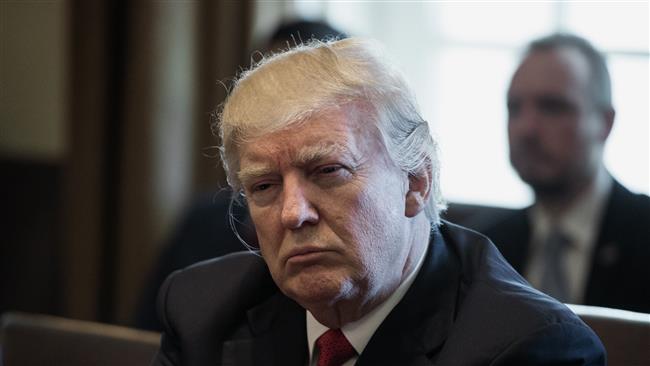
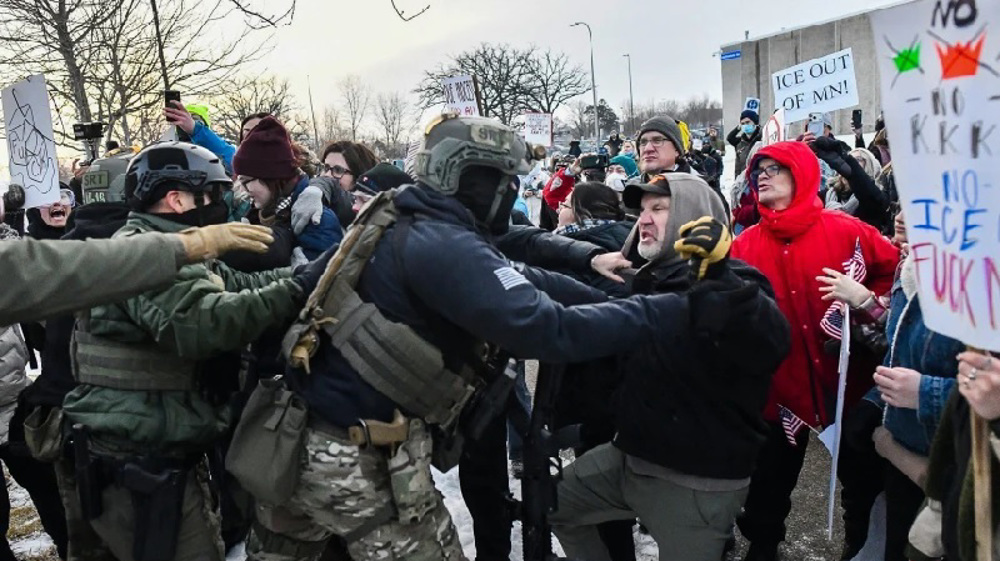

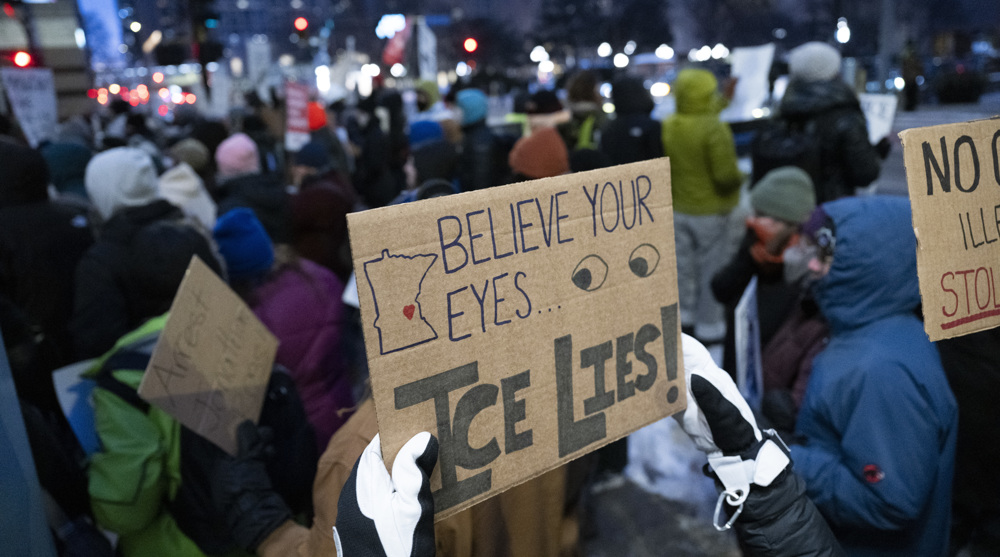



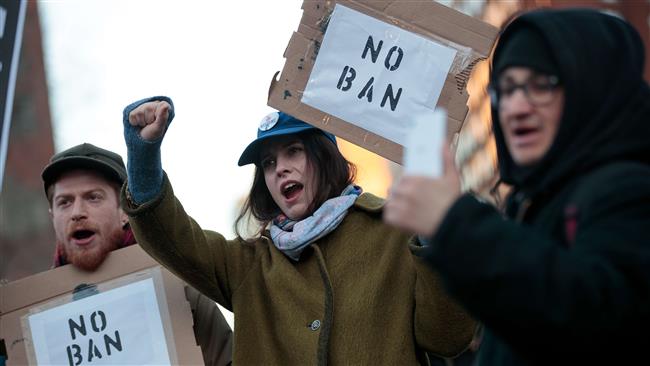
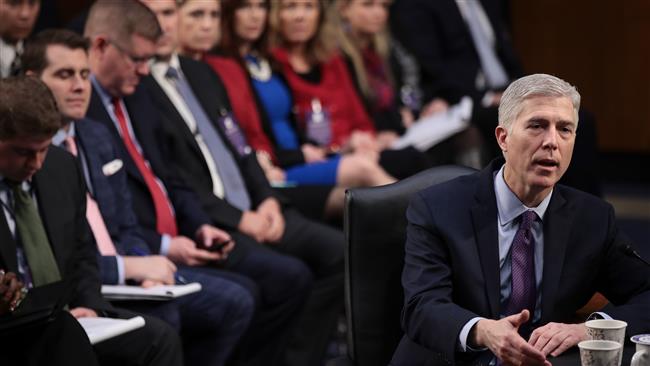
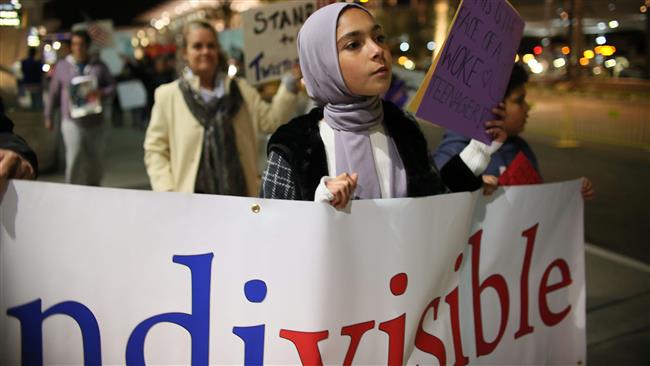
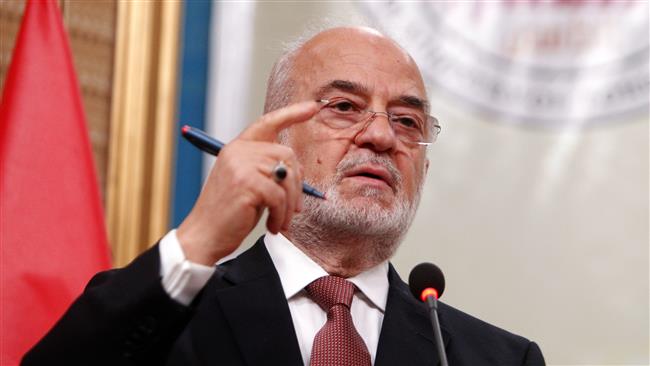
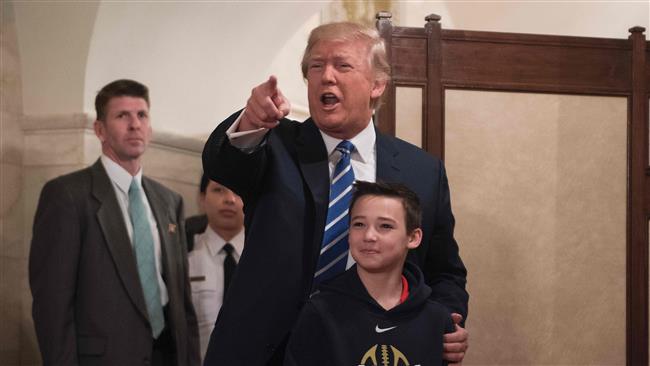
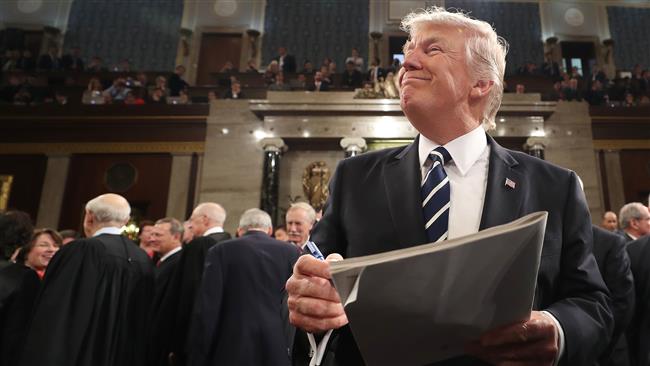
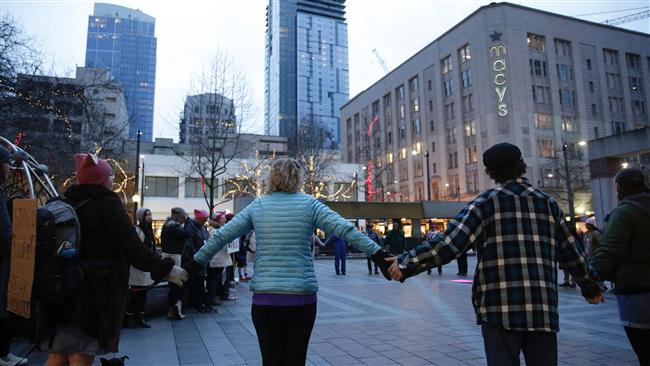

 This makes it easy to access the Press TV website
This makes it easy to access the Press TV website